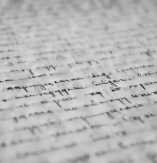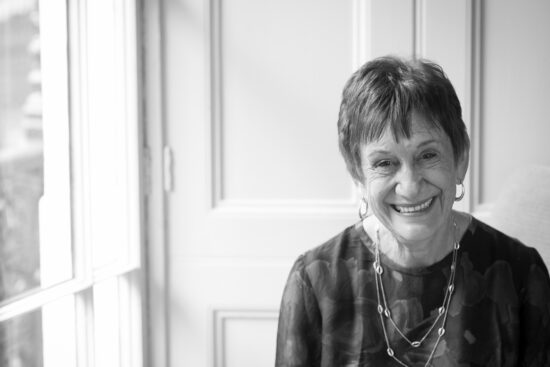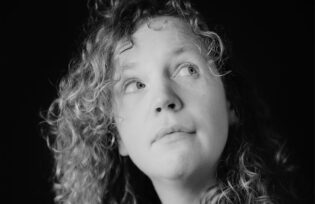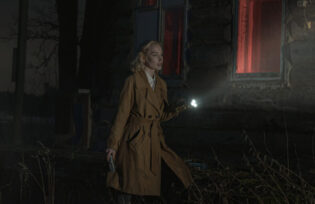


Writing LOW: an Interview with Poet Chrissy Williams
14 minutes read
JC: Your new book LOW came out last month. The first thing a reader will notice is the proliferation of different forms, tones, perspectives and approaches it finds to talk about the book’s central subject. Do you set out to find new forms and stylistic modes, or do the poems just come that way naturally?
CW: Each poem makes its own unique demands on form and style. I try to follow what will best serve the individual poem.
JC: At what stage do those demands start being made? Do you write out some words first in a formless block, and then from there start being drawn towards a certain form? In what ways and at what moments does the form that will serve an individual poem make itself known to you?
CW: Pretty early on. But it’s different for every poem, because every poem starts in a different way.
Sometimes a poem starts from a specific phrase and gets built up from that, in which case the pace, register, tone etc of that phrase suggests a lot about the overall feel of the poem from the get-go.
For example, the second poem in the book, ‘! katya !’ sprang out of the thought ‘I want to be friends with Katya!’ (she’s a drag queen), and the excitement and exuberance of her and of the statement immediately informed the poem, to the extent that it wound up punctuated with exclamation marks: ‘i want ! to be friends ! with Katya ! …’ It became a poem about the joy of transgression, so that’s why it’s also all lowercased, why it’s centred on the page, etc, etc.
But sometimes a poem will start from a specific inspiring incident or work of art, with me making lots of notes in an expansive and unselfconscious way (e.g. ‘LIEBE’, the poem written out of watching Murnau’s Faust at Royal Festival Hall). I scribble down everything that occurs to me, then go back and see what (if anything) is of interest there, and edit it down. So it’s the editing process there that gradually feels out what’s going to work across the whole piece.
So, I suppose one mode starts with an empty page that you slowly add words to (and then edit), while the other involves a whole heap of words, most of which need to be swept away and burnt.
Sometimes a poem will suggest itself foremost as a formal idea though. For example, ‘Signing Off’ is a mostly found poem, made up of all the sign-off phrases from the true crime podcast My Favorite Murder. After hearing a few of these rich absurd horrific sign-offs, I thought they would make for an interesting poem. So I wrote down as many as I could and chose and shuffled the best ones. The focus for that kind of poem tends more towards curation.
JC: Actually what you’re describing really chimes with me in terms of the compositional process: either lots of words haphazardly put down which you edit back, or a powerful phrase which acts as some kind of engine, generating further phrases around itself. Either way it strikes me there’s an idea of ‘towards’ though, in the process. Do you feel like you have some kind of end point that you’re hoping to get to with each poem? How do you know when a poem’s finished?
CW: The end point is when I no longer feel the need to tinker; when I no longer see repetitions or flab or anything unnecessary. Sometimes that happens quite quickly, while other poems seem to require endless prodding and editing.
The final test is always to see how it sounds and feels when I read it aloud. There’s an essential dimension to poems that’s only revealed in performance, and I want to account for that on the page too.
But, also, I want to make sure the poem has said and done everything I want it to. I’m frustrated by poems that start promisingly, then never quite seem to get there — like a shopping trolley veering off to one side — poems that never quite land their key moment. I’m talking about the Emily Dickinson ‘as if the top of my head were taken off’ moment, or the ‘eye of the duck’ moment if you’re David Lynch. At least that’s the aim. Sometimes poems have to be abandoned, if they go too far down the wrong road and I can’t steer them back.
JC: So it sounds in some ways like there’s a kind of middle-ground between control and mystery in your writing. On the one hand, you are steering, and you do have almost quantitative ‘tests’ in place for gauging when a poem’s finished – when there’s nothing unnecessary left, when it sounds and feels right read aloud. On the other hand, though, there’s a kind of mystery in terms of what it is any individual poem is trying to do: they have ‘key moments’ and Dickinsonian head-taken-off impacts, but I sense it would be hard to summarise what exactly that is for any given poem. Do you trust to instinct when you write? What percentage is gut feeling and what is rational working-out?
CW: It’s both, and I need both, all the time. They’re not different jobs — they’re happening simultaneously. It’s usually not good if either side wins out too much.
You might imagine that instinct comes more at the start of the creative process, and that editorial work brings in something more rational. But the editing and redrafting process can also become a weird alchemical act, and the intuitive way that ideas initially come to you are all subject to rational moulding the second you put them into words.
I think that’s what I meant before about poems that go too far down the wrong road – words shape thought in a way that’s often hard to reverse. So if you start to articulate things before they’re quite ready, you run the risk of getting pulled in the wrong direction.
Anyway, I like your definition of these two modes as ‘mystery’ and ‘control’. But yes, it’s both, absolutely, all the time.
JC: In fact, it strikes me that in one of the ‘Improv’ poems from LOW you write ‘You don’t need to be obvious, just be clear.’ I wonder if that might be taken as a point about poetry, too. Now I come back to look at it, in another one of those poems you write, ‘See what works and follow it into a pattern’, which seems a little like what you wrote earlier about finding the forms of a poem. It’s certainly not all these poems are doing, but it does raise an interesting question: where do you stand on whether it’s okay for poems to be about poems?
CW: I think it’s fine, as long as the poems are interesting to read. Poems are usually ‘about’ more than one thing though, aren’t they?
I’m not sure where the trope of ‘hating poems about poetry’ originally stems from – I suspect maybe from the old mainstream’s mistrust of postmodernism and deconstruction? I feel like we’re long past all that though. The lines have blurred.
In terms of those improv poems you mention – I think they can be read in lots of different ways. Particularly within the context of a book, surrounded by other poems they’ve been placed into conversation with. Poetry’s great ability is to shine a light on language and show us how much meaning is possible from a few small words – how flexible, or absurd, or unfit for purpose, or beautiful, or imaginative language can be in trying to shape ideas.
JC: I love that list: flexible, absurd, unfit for purpose, beautiful, imaginative. I think one reason I asked the question about poems being about poems is that – just as you say – there’s a mistrust in mainstream English culture about postmodernism and self-reflexivity, and maybe even all theory and anything academic-smelling in poetry. One thing I love about your poems is that they do completely bulldoze that boundary by being simultaneously challenging, complex, very new-feeling, demanding new ways of reading… but at the same time undeniably playful, funny, immediate and fresh. Often when I look at students’ poems, I get a sense that anxiety has led them to try and make the work more serious, opaque, ‘poemy’. Would you have any advice for poets wondering what the poetry world expects from a poem in these terms?
CW: Wow. ‘What the poetry world expects…’ What a phrase. ‘The poetry world…’
That phrase implies there’s one coherent society which follows the same rules, shares the same values and expects the same thing, which I don’t think is even remotely true when it comes to poetry (or anything, really). I think all anyone really wants (rather than ‘expects’) is really good poems. And a good starting point for that is to avoid cliché and being boring.
In terms of being afraid to use humour or playfulness – I would just say that you can be both funny and serious at the same time. They’re not opposites.
I understand why people might equate ‘literariness’ with ‘seriousness’ though. You’re taught to dress for the job you want, and it follows that the best way to be taken seriously is to ‘act serious’. But really the best way to be ‘taken seriously’ as any kind of creator is just to be serious about and committed to the work that you do – whatever that work might be.
JC: Yes, you’re absolutely right about the ‘poetry world’ consisting of all these different communities. What I was trying to get at was the question I remember having when I started writing – and it’s one I’ve often heard from students – as to what I could expect from a reader. Will they get this reference to Avril Lavigne? Will they get this reference to Aeschylus? Do I need to care about that? The problem with the (true, important) observation that there are multiple poetic communities is that the knowledge doesn’t necessarily help us as poets make decisions for our audience(s). Is that something you still worry about, or do you think you’ve internalised the answers to those questions over time? Do you think about who your audience is at all?
CW: I always imagine I’m writing for one reader who encounters the poem alone. And I have no idea whether that reader will know more about Aeschylus or Avril Lavigne. It’s an intimate relationship – speaking to a stranger one-to-one. And I want to make that intimate experience work.
There are easy ways to provide context for a reader without being heavy-handed – poem titles, epigraphs, back-cover blurbs, notes at the end of a poem or book – it’s a balance. I think some hint of context is almost always useful though, whether you’re referencing Clytemnestra’s anger at Agamemnon’s concubine or a song about not liking someone’s girlfriend (which, it could be argued, are basically the same thing).
JC: That’s a really fascinating answer. I wanted to pick up on the ‘speaking to a stranger one-to-one’ facet of your poetry (or poetry in general)? Because to circle back to my first question, one thing that LOW does throughout is try on a series of masks, and play a series of games with perspective, narrative and speaker. Could you talk about the use of first person or other narrative choices in your poems?
CW: At the LOW launch, Rebecca Perry, Deborah Landau and I had a conversation about the first person, agreeing that the first person is just another writing tool the poet can use, and it doesn’t automatically imply that you’re hearing the authentic ‘inner voice’ of the actual person writing the poems. Rebecca has this amazing poem ‘No rabbit’ which talks about this: ‘Lying comes with many responsibilities, or as many as we choose to acknowledge, perhaps none. / Or it needn’t be called lying at all.’
But the great point of that poem is that she’s still using a first-person voice, which sounds authentic, to communicate this sense that you can never really trust that authentic-sounding voice. And I think that’s the key. As poets, we want to have our first-person cake at arm’s length, but we want the reader to eat it too. We all know it’s a tool, but part of why we use it is because of the intimacy it creates, to help us build that relationship with the reader. The only danger is when a reader might learn that the specific details in a given poem might not be one-for-one ‘real life’ events, and be disappointed. But I think that only really happens when poets are pitching their poems primarily as autobiography.
I like walking that line though. Poetry does tend to come, at its heart, from a very raw emotional place for me. A poem might look like it’s ‘about’ adverts on the television, but the emotional core of it is real, even when it’s invoking a character or spoken in someone else’s voice: emotion rather than facts.
One way to read LOW is to see the whole book as a response to miscarriage – from the early exuberance before it first happened, to poems that deal with it a little more directly, to different periods of anger, depression, and a kind of eventual distant hope afterwards. That experience of miscarriage is real, and it haunts the book, even if I don’t give you any specific personal details about it in the poems. But another way to read the book is ‘here’s a fun bit about drag queens, here’s a bit about watching Faust, here’s a bit about going to Disneyland’. And either of those readings is fine with me – it’s whatever the reader wants to get from the poems. What those poems mean to me is not what they have to mean to anyone else.
So, yes, for me, poetry isn’t about autobiography. Poetry may come from a place of truth, but fundamentally it needs to be crafted into a creative statement that engages and pushes the reader’s imagination in unexpected ways.
I’m not a surrealist, but I like the thrust of surrealism that says: sometimes seeing someone cry isn’t enough to connote the intensity of their sadness, sometimes you’ll feel it more if you see them weeping literal glass, or waterfalls, or filling an entire ocean. For me, playfulness is a way of unlocking the imagination, helping to get across the ways we feel about things, rather than just thinking about the facts of them.
**
Chrissy Williams is a poet, editor and tutor based in London. Her work has been featured by the BBC and her first book-length collection Bear (Bloodaxe Books, 2017) was one of the Telegraph‘s 50 Best Books of the Year. The author of numerous pamphlets, her work has been shortlisted for the Michael Marks Award, and published in many magazines and anthologies including Poetry, Poetry Review, Poetry London and Salt’s Best British Poetry series. She is editor of the online poetry journal PERVERSE, and previously worked both at the National Poetry Library and as Director of the Poetry Book Fair. She is also an improviser and edits comics, including the New York Times bestselling The Wicked + The Divine. Her second book-length collection, LOW, was published by Bloodaxe in 2021. You can read more about the book on the Bloodaxe website.
Joey Connolly grew up in Sheffield and studied at the University of Manchester. He founded and edited the poetry journal Kaffeeklatsch and is currently the Head of Faber Academy. His poetry and criticism have appeared in various places including Poetry Review, Poetry London, The Sunday Times and on BBC Radio 4. He received an Eric Gregory Award in 2012, and his first collection, Long Pass, was published by Carcanet in 2017.
End








